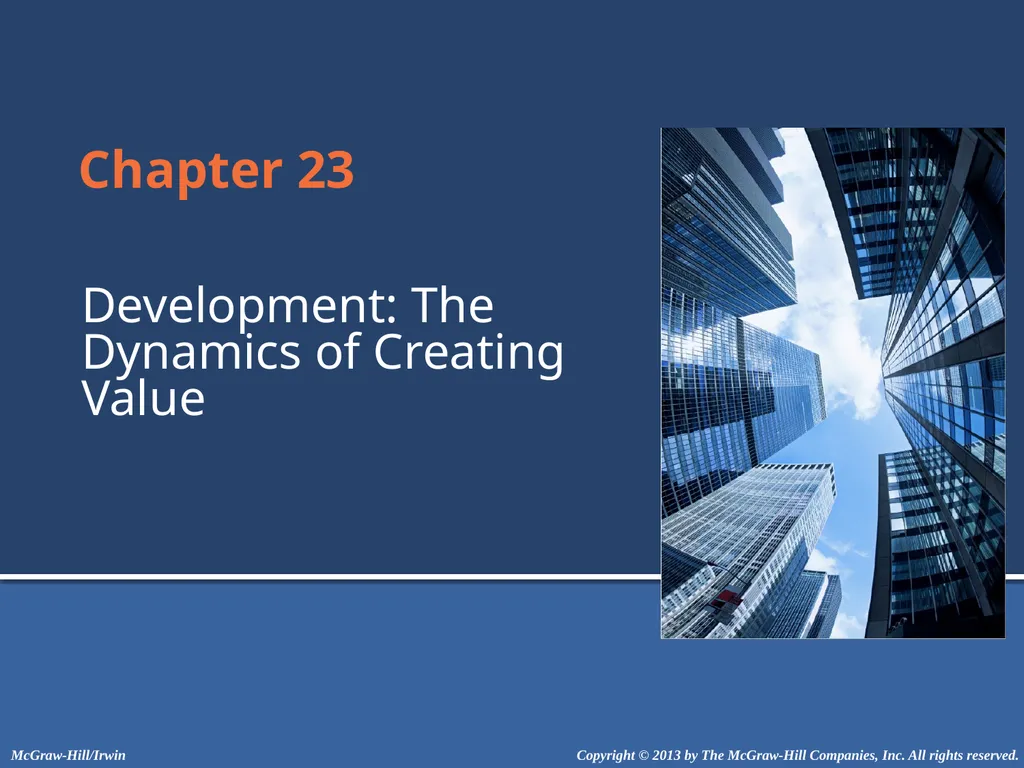
Author : lois-ondreau | Published Date : 2025-05-29
Description: Chapter 23 Development: The Dynamics of Creating Value Copyright 2013 by The McGraw-Hill Companies, Inc. All rights reserved. McGraw-HillIrwin Development Defined Development: The continual reconfiguration of the built environment toDownload Presentation The PPT/PDF document "" is the property of its rightful owner. Permission is granted to download and print the materials on this website for personal, non-commercial use only, and to display it on your personal computer provided you do not modify the materials and that you retain all copyright notices contained in the materials. By downloading content from our website, you accept the terms of this agreement.
Here is the link to download the presentation.
"Chapter 23 Development: The Dynamics of Creating"The content belongs to its owner. You may download and print it for personal use, without modification, and keep all copyright notices. By downloading, you agree to these terms.













